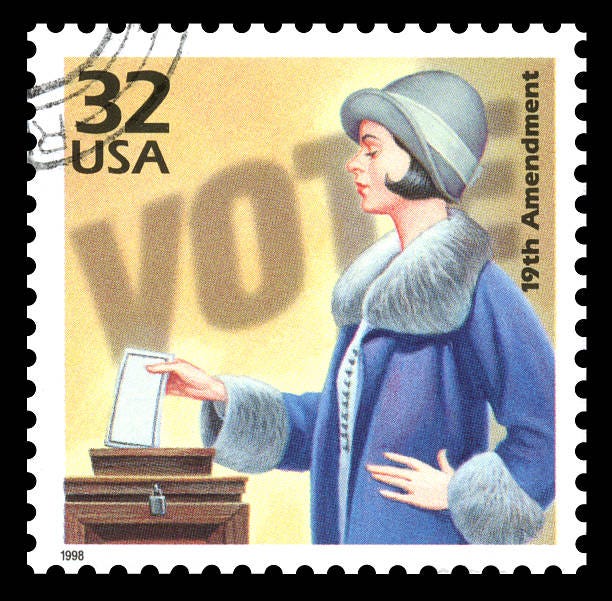It's Women's Equality Day commemorating the enactment of the 19th Amendment granting women the right to vote
This isn't a right to be taken for granted. There are people in our country today who think this was a bad idea. Vigilance is the price of liberty!
Today is Women’s Equality Day.
The holiday commemorates the enactment of the Constitution’s 19th Amendment on this day in 1920, which enshrined the right of women in the United States to vote.
Since that time, data collected on voter registration and election turnout shows women consistently vote in greater numbers than men.
That was not an overnight process. While the 19th Amendment was enacted 105 years ago, it took decades for women to show up at the polls at the same rate as their male counterparts. But since the 1980s, women have actually voted in higher numbers.
And there are also more women registered to vote in the first place.
Why?
It was not until … the 1940s and the 1950s that women’s life expectancy caught up to that of men. Because of the impact of infections and postpartum, maternal death, and now we see that for every subsection of the population, women outlive men. So that’s one of the things that contributes to women being a majority of the voting age population, and then that is compounded by the fact that they are more likely to vote.
But why are they more likely? I asked ChatGPT, and among the possible reasons are:
Civic Engagement & Community Ties
Women, on average, are more likely to be involved in community organizations, schools, churches, and local networks that encourage civic participation.
These social ties boost voting behavior.
Policy Stakes
Women are statistically more likely to see elections as directly connected to issues that affect their daily lives — such as healthcare, education, reproductive rights, and social services.
This increases the sense that voting "matters."
Age and Demographics
Women live longer than men, and older Americans vote at much higher rates. That longevity skews the electorate toward women.
Women are also less likely to be disenfranchised by incarceration, since men (especially younger men) are incarcerated at much higher rates.
Another question deserving an answer is this: Why did it take so long? Think about it: 1920. That means that for more than 130 years after our country’s founding, women had no say whatsoever in our democracy. In that time, we fought a Civil War that, on paper anyway, granted Black men the right to vote, but not Black women.
Looking back at this, it seems inconceivable.
But even now, there are elements in our country who want America to become a “Christian and patriarchal” society, a view endorsed by Defense Secretary Pete Hegseth and others who oppose women’s suffrage.
This should serve as a reminder that our rights, while hard-earned, are fragile. What governments give, they can take away.
As I noted in a recent Essential News column in Florida Weekly:
As Thomas Jefferson is purported to have said: “The price of liberty is eternal vigilance.”
I should note that some party poopers claim Jefferson wasn’t the first to say that. Some attribute it to a speech by a fellow named John Philpot Curran. But he wasn’t even an American; he was Irish. So, I’m sticking with Jefferson.
Florida was no help
As a footnote, I also pointed out that Florida was no help at all in the efforts to secure women’s right to vote:
The State of Florida, when asked to join the rest of the country in ratifying the amendment, declined. In fact, the state didn’t even consider it then, but finally got around to signing it in—get this!—1969, nearly half a century after it had become law.
Florida was joined in its obstinacy by most of the former Confederate states. But the Sunshine State, thankfully, was not the very last to ratify the19th Amendment. That dubious distinction belongs to Mississippi.
Thanks, Mississippi.
RELATED STORIES:
Women won the right to vote with no help from Florida
Gender Difference in Voter Turnout
Why Women Vote in Higher Percentages
J.C. Bruce, journalist and author, is the founder of Tropic Press. He holds dual citizenship in the United States of America and his native Florida.
Thanks to our sponsor
Today’s report is brought to you by Tropic Press Books, home of The Strange Files. Interested in sponsoring these reports? Contact: Advertising@Tropic.Press
It’s good to share
Tropic Press is a reader-supported publication. Here’s a big shout-out to all our loyal subscribers. Feel free to forward this email to your friends so they can enjoy it too. The more people we reach, the greater community of like-minded people we build. This is your chance to be part of all that. Thanks!





